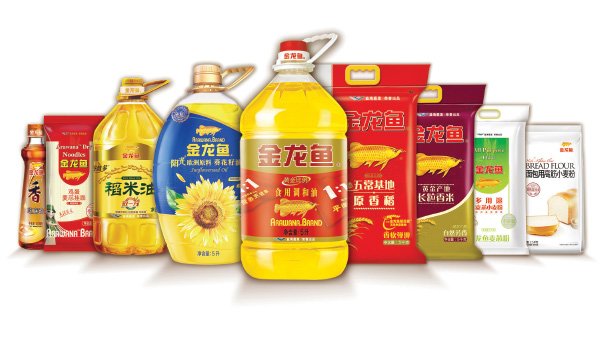Wait, palm oil prices crashed in May and June? Are palm oil stocks undervalued now then?
Palm oil stocks’ performance these past months have been rather muted. The Bursa Malaysia Plantation Index declined from its peak of 9,082 in April 2022 to 7,060 currently in August 2022.
After Indonesia eased its palm oil export ban in May, the sudden increase in the supply of palm oil drove prices down quite significantly.
From April to August 2022, prices declined by 46% from RM7,683 per metric ton to RM4,163 per ton.
This weakness in prices resulted in the selling down of many Singapore and Malaysia listed palm oil companies. Many of them are trading at <10x P/E now, indicating that valuations may be inexpensive now.
With that, we bring you 6 Singaporean and Malaysian oil palm stocks that you should know…
#1: Wilmar International Limited (SGX:F34)
Wilmar International Limited (WIL) is in the business of oil palm cultivation, oilseed crushing, edible oils refining, sugar milling, as well as the manufacturing of consumer products, specialty fats, oleochemicals, biodiesel, and fertilizers.
Its financial performance has been strong in both 2020 and 2021 during the pandemic.
Revenue grew by 19.8% in 2020 despite the pandemic, and grew further by 26.9% in the following year to SGD$88.4 bn.
While the plantation segment (oil palm and sugar) makes up only about 6.0% of WIL’s total revenue in 2021, it generates about US$3.7 bn (SGD$5.2 bn) in revenue, one of the the highest in the market for the upstream business.
WIL could be a good investment opportunity based on these following factors:
- One of the biggest palm-oil related company in the Singaporean stock market with a market capitalisation of SGD$26 billion.
- Steady dividend yield of 4.0%.
- Well-diversified across the supply chain. Downstream business encompass about 71% of its profits.
It is now trading at a price earnings ratio of 8.2 times compared to 2021’s range of 11 to 18 times.
According to analysts, WIL has mostly BUY investment calls, with UOB Kay Hian having the highest target price of SGD5.50.
#2: Golden Agri Resources (SGX:E5H)
Golden-Agri Resources (GRI) is a palm oil plantation company that cultivates and harvest palm oil trees, and also extracts fresh fruit bunches (FFB) into crude palm oil and palm kernel. Similar to WIL, it also has downstream businesses of producing final products such as cooking oil, margarine, biodiesel and oleochemicals.
In 2021, GRI’s revenue growth was one of the strongest in this list, growing by 40.2% from SGD$9.7 billion to SGD$13.9 billion.
Amazingly also, its net profits grew by 13 times from SGD$44m in 2020 to SGD$640m over the same period.
Most analysts still have GRI at either a HOLD or SELL rating at the current share price of SGD$0.28, but there are some hidden values in GRI due to the following factors:
- Its crude palm oil yield was 30% higher than the Indonesian and Malaysian average in 2021.
- Increased cost optimisation and efficiency with 2021 profit margins increasing sharply to 4.7% from 0.5% in 2020.
Trading at a price earnings ratio of 3.7 times, GRI can be considered undervalued considering that it normally trades around 6 to 7 times in 2021.
#3: First Resources Limited (SGX:EB5)
Similar to GRI, First Resources Limited (FRL) core businesses include the cultivation and harvesting of fresh fruit bunches, and milling them into crude palm oil and palm kernel. Its downstream business includes the production of biodiesel, refined, bleached and deodorised (RBD) olein and stearin, palm kernel oil, and palm kernel expeller.
FRL’s revenue growth is the most impressive among the Singaporean-listed companies here, growing by 52.3% from SGD$911m in 2020 to SGD1.4 billion in 2022. On the other hand, net profits followed suit too, growing at a strong rate of 57.5%.
There are some potential factors of FRL that could make it a worthy investment:
- Profit margins of FRL are quite high at 15.6% in 2021. Plantation companies are normally very asset-heavy, with margins below or at around 10%.
- Attractive dividend yield at 5.0% currently.
- Business is quite focused on downstream (higher value-add) with 88.9% of revenue coming from refinery and processing.
FRL is now trading a P/E ratio of 6.9 times which is much lower than 2021’s ratio of 17 to 19 times.
At the current share price of SGD$1.52, most analysts have FRL at either HOLD or BUY calls.
#4: Sarawak Oil Palms (5126-MY)
Sarawak Oil Palms Berhad (SOPB) is primarily an upstream palm oil company, engaging in cultivation and harvesting of fresh fruit bunches and some downstream businesses of refining and crushing of palm kernels.
All of its upstream businesses are located in the state of Sarawak in Malaysia.
SOPB has the highest revenue growth rate here, registering 59.5% in 2021. This comes at the back of continuous revenue declines from 2018 to 2020, with 2021 being the rebound year for SOPB.
In line with revenue, profits also grew by 149.8%, from RM204 million in 2020 to RM510 million in 2021.
SOPB could be a good buy at the current cheap valuations according to the following factors:
- SOPB has state government backing. Sarawak’s state government’s investment arm, is a major shareholder of SOPB at 28% of total shares.
- A rebound year for SOPB in 2021 after years of revenue decline.
- Sarawak is the largest state in Malaysia, with large supply of land. All of SOPB’s upstream business is in Sarawak.
With P/E ratio now at 3.5 times, it is much lower when compared to its median ratio of 9.9 times from 2017 to 2021.
SOPB’s current investment call is overwhelmingly BUY with BIMB having the highest target share price of RM6.16.
#5: Hap Seng Plantations Berhad (5138-MY)
Hap Seng Plantations Berhad (HSP) is a palm oil company focused mainly on the upstream business of planting and extracting fresh fruit bunches from its palm oil estates, and milling them into crude palm oil.
Its businesses are mainly in the state of Sabah in Malaysia, and HSP was listed in Malaysia since 2007.
In line with its peers, HSP’s revenue grew strongly by 43.5%, from RM468m in 2020 to RM671m in 2021.
Net profits almost tripled from RM90.2m in 2020 to RM224m in 2021, making HSP’s profit growth one of the best.
There are several factors that could make HSP a worthy investment opportunity:
- Strong profit margin of 33.4% in 2021. Plantation companies are normally very asset-heavy, with margins below or at around 10%.
- Ability to scale up past the RM500m annual revenue threshold and gain higher profit margins.
- Dominant position as palm oil producer in the state of Sabah, Malaysia.
HSP is now trading at a valuation P/E ratio of 5.7 times, far lower than the median ratio of 17.0 times from 2017 to 2021.
Most analysts are giving a BUY call to HSP, with Kenanga calling the highest target price of RM3.00.
#6: Kuala Lumpur Kepong Berhad (2445-MY)
Kuala Lumpur Kepong Berhad (KLK) is a palm oil company that has both upstream and downstream businesses in Malaysia and Indonesia.
It is one of the biggest palm oil companies listed in Malaysia with a market capitalisation of RM24 billion.
In 2021, KLK’s revenue grew by a respectable 27.7% from RM15.6 bn to RM19.9 bn in 2020. Profits tripled from RM773m in 2020 to RM2.3 billion in 2021, one of the highest among palm oil companies listed in Malaysia.
KLK could be a buy if investors are positive on the following factors of the company:
- High demand from other countries. About 85% of its revenue is generated from countries outside of Malaysia in 2021.
- Diversified business across upstream and downstream. Plantation and manufacturing segments make up about 44% and 54% of its revenue respectively in 2021.
- Decent profit margin at 11.6% in 2021.
In terms of valuation, KLK is trading at about 10.3 times P/E, which is much lower when compared to the median ratio of 33.3 times from 2017 to 2021.
KLK also has an overwhelming BUY call from analysts, with the highest target price of RM28.77 coming from BIMB.
Conclusion
The recent sell-down of palm oil stocks may present a good opportunity for investors.
In the long-term, the eventual shift away from fossil fuel sources in line with the Net Zero Emissions by 2050, is expected to benefit palm oil companies.
Investors can take this chance to do further due diligence into whether they have solid business fundamentals.


